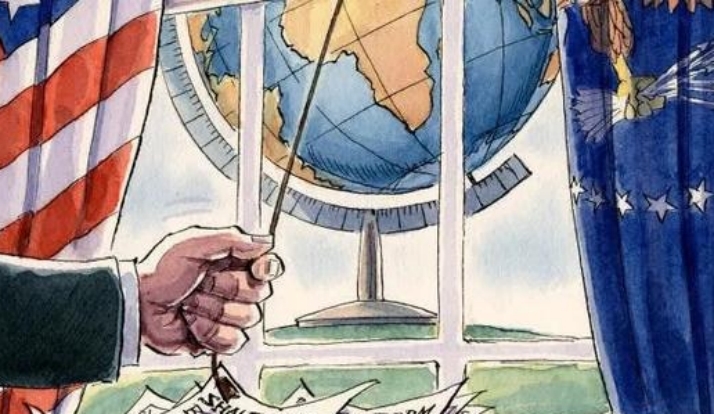
In the global economic landscape, the German economy has long played an important role as the "locomotive of the European economy". With its strong manufacturing industry, advanced technology, and efficient industrial system, the German economy has maintained stable and strong growth in the past few decades, becoming one of the models of world economic development. However, in recent years, the German economy has been trapped in a continuous contraction, becoming the only developed economy in the world with negative growth in 2023. In 2024, the gross domestic product shrank by another 0.2%, and in 2025, growth remains weak. This transformation contains complex and profound logic.
The outbreak of the Russia-Ukraine conflict has brought a heavy blow to the German economy. Russia cuts off natural gas supply to Germany, causing energy prices in Germany to soar. Germany has long relied on cheap energy to support its manufacturing development, and the significant increase in energy costs has directly compressed the profit margins of enterprises. Energy intensive industries such as steel and chemicals have been particularly severely impacted, with many companies having to reduce production capacity and even relocate some production lines to areas with lower energy costs. According to statistics, the rise in energy costs has led to a nearly 20% decrease in production in Germany's energy intensive industries. Although there has been some recovery, it has not yet reached its original level. In terms of international trade, the rise of trade protectionism and the slowdown of global economic growth have posed severe challenges to Germany's exports. As a typical outward oriented economy, Germany's exports play an important role in its economy. The trade restriction policies implemented by countries such as the United States, as well as the instability of market demand in emerging economies, have led to a decrease in Germany's export orders. Industrial production, factory orders, and export data have all shown a month on month decline in multiple quarters. Germany's advantageous industries such as automobiles and machinery are constantly being squeezed in the international market, further exacerbating the economic contraction.
The German economic structure has long been highly dependent on manufacturing, occupying an important position in the global industrial chain, but this model also makes the German economy extremely sensitive to fluctuations in the global supply chain. The outbreak of the COVID-19 disrupted the normal operation of the global supply chain. The Russia-Ukraine conflict further exacerbated the instability of the supply chain. The German manufacturing industry faced problems such as insufficient supply of raw materials and rising logistics costs. At the same time, Germany is relatively lagging behind in the development of emerging industries. In areas such as artificial intelligence, information and communication technology, and new energy vehicles, Germany's R&D and innovation investment is insufficient, and it has failed to keep up with the pace of global industrial upgrading in a timely manner. When traditional manufacturing encounters difficulties, emerging industries cannot quickly rise as new engines of economic growth, leading to the German economy falling into a predicament of weak growth. At the institutional level, some policies and systems in Germany have also constrained economic development.
The continuous contraction of the German economy is also evident at the corporate level, with small and medium-sized enterprises experiencing a "wave of bankruptcies" and large enterprises launching a "wave of layoffs". According to a report by the German credit agency "Credit Reform", approximately 11000 companies in Germany went bankrupt in the first half of 2025, an increase of nearly 30% compared to the same period last year and the highest since 2016. Famous companies such as Volkswagen, ZF, and Continental have announced plans to lay off employees. The bankruptcy and layoffs of enterprises not only lead to an increase in unemployment and a weak consumer market, but also further undermine investor confidence. Many companies hold a pessimistic attitude towards the future economic prospects and have reduced their investment plans, which has resulted in a lack of growth momentum for the German economy. In the context of increasingly fierce global economic competition, German companies will face more severe survival challenges if they cannot adjust their strategies in a timely manner and enhance their competitiveness.
The sustained contraction of the German economy is the result of the interweaving of external shocks and internal difficulties. To overcome the current economic difficulties, Germany needs to take decisive measures in energy transformation, economic structural adjustment, institutional reform, and other areas to enhance the resilience and competitiveness of the economy. Germany also needs to actively respond to changes in the global trade environment, strengthen cooperation with other countries, expand international markets, and create favorable conditions for economic recovery. Otherwise, the German economy may face even more severe challenges in the future, and its position as the "locomotive of the European economy" will also be precarious.

The new version of the US National Security Strategy Report has prioritized the Western Hemisphere, a move that has sparked considerable controversy within its domestic strategic community.
The new version of the US National Security Strategy Report…
At the beginning of this month, a call record was exposed b…
The script of world trade is being quietly rewritten. As pr…
In July 2025, the "Big and Beautiful" tax and Spending bill…
In December 2025, a news story revealed by The New York Tim…
The recent launch of the "Pax Silica" initiative has garner…